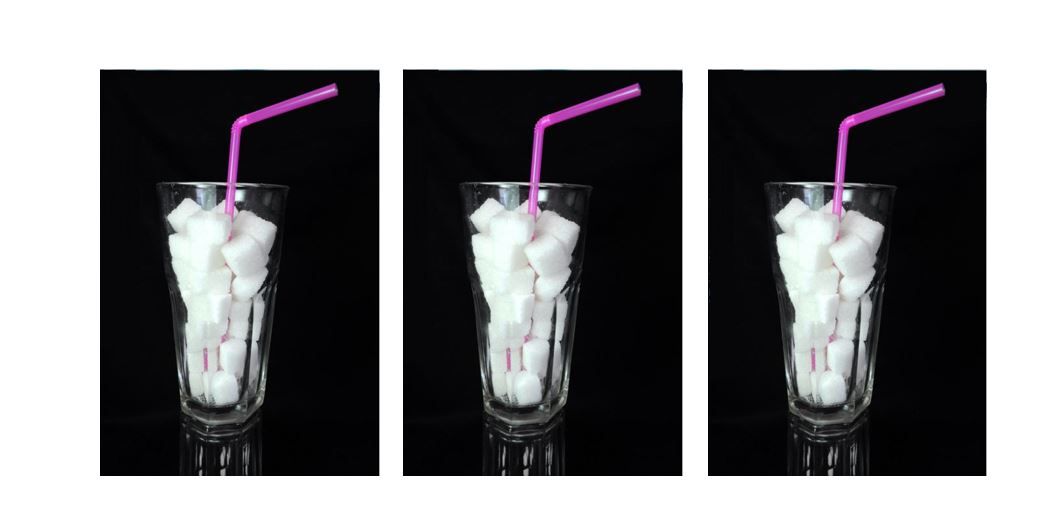- Clinical Technology
- Adult Immunization
- Hepatology
- Pediatric Immunization
- Screening
- Psychiatry
- Allergy
- Women's Health
- Cardiology
- Pediatrics
- Dermatology
- Endocrinology
- Pain Management
- Gastroenterology
- Infectious Disease
- Obesity Medicine
- Rheumatology
- Nephrology
- Neurology
- Pulmonology
Sugar-sweetened Drink Consumption May Increase Risk for Early-onset Colorectal Cancer
A new study found that women who consumed ≥2 servings/day of sugar-sweetened beverages had a 2.2-fold higher risk for early onset CRC vs those who had less than 1 serving/week.
©Zsido/Shutterstock.com

Higher consumption of sugar-sweetened beverages (SSB) in adulthood and adolescence is associated with a more than 2-fold risk of early-onset colorectal cancer (EO-CRC, age <50 years at diagnosis), according to a new study published online May 6 in the journal Gut.
Notably, the researchers, from Washington University School of Medicine, calculated that each serving-per-day increment of SSB intake among adolescents aged 13-18 years was associated with a 32% higher risk of EO-CRC.
Investigators point to a significant increase in incidence of EO-CRC in high-income countries over the past 20 years. They note that adults born around 1990 had 2 times the risk of colon cancer and 4 time the risk of rectal cancer compared to those born around 1950. There has been a parallel increase in consumption of SSB during this period with highest consumption found among adolescents and young adults aged 20 to 34 years.
"Colorectal cancer in younger adults remains relatively rare, but the fact that the rates have been increasing over the past three decades -- and we don't understand why -- is a major public health concern and a priority in cancer prevention," said senior author Yin Cao, ScD, an associate professor of surgery and of medicine in the Division of Public Health Sciences at Washington University, in a Washington University School of Medicine statement. "Due to the increase in colorectal cancer at younger ages, the average age of colorectal cancer diagnosis has gone down from 72 years to 66 years. These cancers are more advanced at diagnosis and have different characteristics compared with cancers from older populations."
"Due to the increase in colorectal cancer at younger ages, the average age of colorectal cancer diagnosis has gone down from 72 years to 66 years. These cancers are more advanced at diagnosis and have different characteristics compared with cancers from older populations."
In framing their rationale for the study, the authors cite the expanding body of evidence for a plausible link between metabolic conditions (eg, adulthood and adolescent obesity, early-onset type 2 diabetes) and EO-CRC. They state that investigation of a potential link between SSB intake throughout the life course with EO-CRC risk is a critical step to help reduce disease burden. The current study was designed to help address gaps in knowledge about the association.
The investigators used data from the Nurses Health Study II (NHSII), a large ongoing prospective study of >116 000 US female registered nurses aged 25-42 years at enrollment in 1989. Using results of a validated food frequency questionnaire (FFQ) administered in the study ever 4 years, a group of 95 464 women was identified who had reported types and estimated amounts of adulthood beverage intake. A subset of that group (41 272 participants) reported beverage intake at age 13–18 years using a validated high school-FFQ in 1998.
The primary end point of interest was the diagnosis of incident invasive EO-CRC (age <50 years at diagnosis) followed by analysis of association with SSB intake.
Participant records were reviewed for information on potential CRC risk factors, including family history of bowel cancer, lifestyle, regular use of aspirin or non-steroidal anti-inflammatory drugs and vitamin supplements, and colonoscopy/sigmoidoscopy.
Information was also collected on participants’ teenage health, including weight and lifestyle.
Among 95 464 women studied, there were 109 incident EO-CRC cases over up to 24 years of follow-up (average ~14 years).
Adult SSB intake & risk. Higher SSB intake in adulthood was associated with a higher risk of EO-CRC after adjusting CRC risk factors. Compared with individuals who consumed <1/serving week, women who consumed ≥2 servings/day had a 2.2-fold higher risk of EO-CRC (RR 2.18; 95%CI 1.10 to 4.35; ptrend=0.02), with a 16% higher risk per each additional serving/day of SSB intake (RR 1.16; 95%CI 1.00 to 1.36).
Adolescent SSB intake & risk. SSB intake in adolescents also was associated with a higher risk of EO-CRC. Each serving/day increment of SSB intake at age 13–18 years was associated with a 32% higher risk of subsequently developing EO-CRC (RR, 1.32; 95%CI 1.00 to 1.75). Estimates were only slightly attenuated after adjustment for adulthood intake of SSBs and total calories slightly attenuated the effect estimates.
When they analyzed the impact of substituting SSBs with artificially sweetened beverages (ASBs), as well as coffee, reduced fat milk, or total milk, investigators found a 17% - 36% lower risk of EO-CRC.
In a stratified analysis for adulthood SSB intake and risk of EO-CRC, the positive association did not substantially vary by family history of CRC, BMI, alcohol use, cigarette use, and adolescent SSB intake (all pinteraction ≥0.23)
"Despite the small number of cases, there is still a strong signal to suggest that sugar intake, especially in early life, is playing a role down the road in increasing adulthood colorectal cancer risk before age 50," said Cao in the Washington University statement. "This study, combined with our past work linking obesity and metabolic conditions to a higher risk of early-onset colorectal cancer, suggests that metabolic problems, such as insulin resistance, may play an important role in the development of this cancer in younger adults."
The authors note, too, that given downward trends, “limiting SSB intake may serve as an effective and actionable strategy to curb the rising incidence of EO-CRC.”
The authors point to several study limitations, including the observational design, the homogeneity of participants, and the low number (<2%) of participants with diabetes (limited ability to stratify results by personal history of diabetes).
